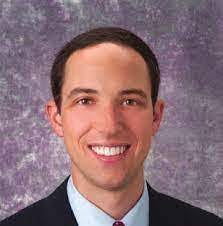Emergency medicine is a dynamic and rapidly growing field that requires specialized knowledge and skills to provide optimal care for patients in critical situations. To succeed in a career in emergency medicine, it is essential to have a solid foundation in the basics of this specialty. In this article, we will explore some key aspects that can help you excel in emergency medicine with Dr Michael Hilton.
First and foremost, obtaining a license to practice emergency medicine is a crucial step. This involves registering with the state medical board and completing the necessary requirements to become a licensed emergency physician. This process ensures that you have met the competency standards required to handle emergencies effectively and safely.
Furthermore, completing a residency program in emergency medicine is essential to gain the necessary experience and expertise. During your residency, you will have the opportunity to work in diverse clinical settings, encountering various types of emergencies. This exposure will enhance your understanding of different emergency situations and equip you with the skills to manage them efficiently.
Building a broad knowledge base is another key aspect of success in emergency medicine. Familiarize yourself with the common medical emergencies you are likely to encounter, such as myocardial infarction, stroke, respiratory distress, and trauma. Stay updated with the latest advancements in emergency medicine through continuing medical education programs, conferences, and journals. By constantly expanding your knowledge, you will be better prepared to provide comprehensive care to your patients.
Developing excellent communication and teamwork skills is paramount in emergency medicine. As an emergency physician, you will often work in high-pressure environments, collaborating with a multidisciplinary team. Effective communication ensures clear and concise exchange of information, facilitating prompt decision-making and streamlined patient care.
Lastly, taking care of your well-being is vital for long-term success in emergency medicine. The demanding nature of the specialty can lead to burnout and fatigue. Dr Michael Hilton Prioritize self-care by maintaining a healthy work-life balance, practicing stress management techniques, and seeking support from colleagues and mentors. Adequate rest, nutrition, and exercise are essential to sustain your energy levels and optimize your performance in the emergency room.
In conclusion, success in emergency medicine requires a strong foundation in the basics of the specialty. Obtaining the necessary licensure, completing a residency program, and continuously expanding your knowledge are crucial steps. Effective communication, teamwork, and self-care are also vital for long-term success. By focusing on these aspects, you can excel in your career as an emergency physician and provide exceptional care to those in need.



